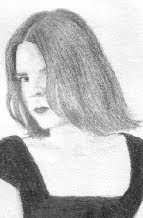2007 TBR Challenge #7
Non-Fiction 5 Challenge #3
 In the autumn of 1710, Jonathan Swift left Ireland to conduct some Church business in London. What was intended to be a short trip turned into three years’ absence, as he became caught up in the politics of the day. During his stay in England, Swift wrote to Esther Johnson (“Stella”) and Rebecca Dingley, his two companions back in Ireland. Added to every day for much of the time, the letters took the form of a journal. It describes the political manoeuvrings and figures (many of them titled) of the time and the events at Parliament and Court, as well as more trivial concerns such as his ongoing battle with his frequently-drunk servant. It also displays the domestic side of one of literature’s greats.
In the autumn of 1710, Jonathan Swift left Ireland to conduct some Church business in London. What was intended to be a short trip turned into three years’ absence, as he became caught up in the politics of the day. During his stay in England, Swift wrote to Esther Johnson (“Stella”) and Rebecca Dingley, his two companions back in Ireland. Added to every day for much of the time, the letters took the form of a journal. It describes the political manoeuvrings and figures (many of them titled) of the time and the events at Parliament and Court, as well as more trivial concerns such as his ongoing battle with his frequently-drunk servant. It also displays the domestic side of one of literature’s greats.
Surprisingly, the book is misnamed; it was after his return to Ireland that Swift created the sobriquet Stella, which was inserted into many of the letters after the author’s death, by his cousin. Although the edited letters aren’t as authentic as those which escaped Deane Swift’s hands, they are much easier to read. It’s somewhat ironic that one of Swift’s plans while in England was a scheme to fix the language, given his own vagaries of spelling and punctuation (including a persistent inability to spell ‘Bolingbroke’). I was also interested to note the use of nite, which I has assumed to be a modern abbreviation. That’s one of things I like about reading old books; I can see how word usage has changed since, and what current phrases existed back then. Three centuries ago, doubt meant think instead of think not; and I found such sayings as ‘other fish to fry’ and ‘get a lift’. They’re often also useful as an education in the life of the time, but the Journal less so than some others. Swift’s time was spent largely in business and politics, so the view of contemporary life is limited; many of the people who appear are wealthy and/or titled, and the majority are (of course) male. But it was interesting to get a glimpse of how things worked in a time when the really important thing was who you knew and what they could do for you.
But he doesn’t disdain to repeat gossip and relate the latest scandals: murders, attempted assassinations, corruption, and other indiscretions. The diary also includes some of the most atrocious puns you’re ever likely to meet. Best of all, it shows the man behind the literary works and genius reputation. He didn’t fit my idea of a churchman at all, what with the gambling and the hanging around young ladies; and I wouldn’t have liked that wit turned against me!
Rating: B-

















No comments:
Post a Comment